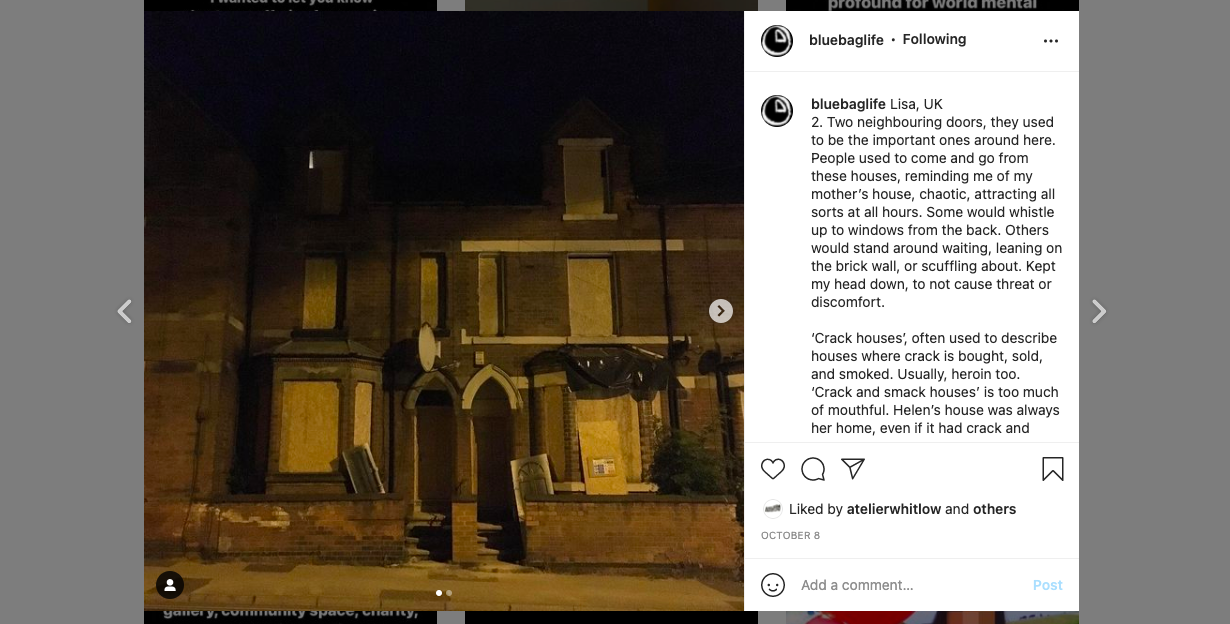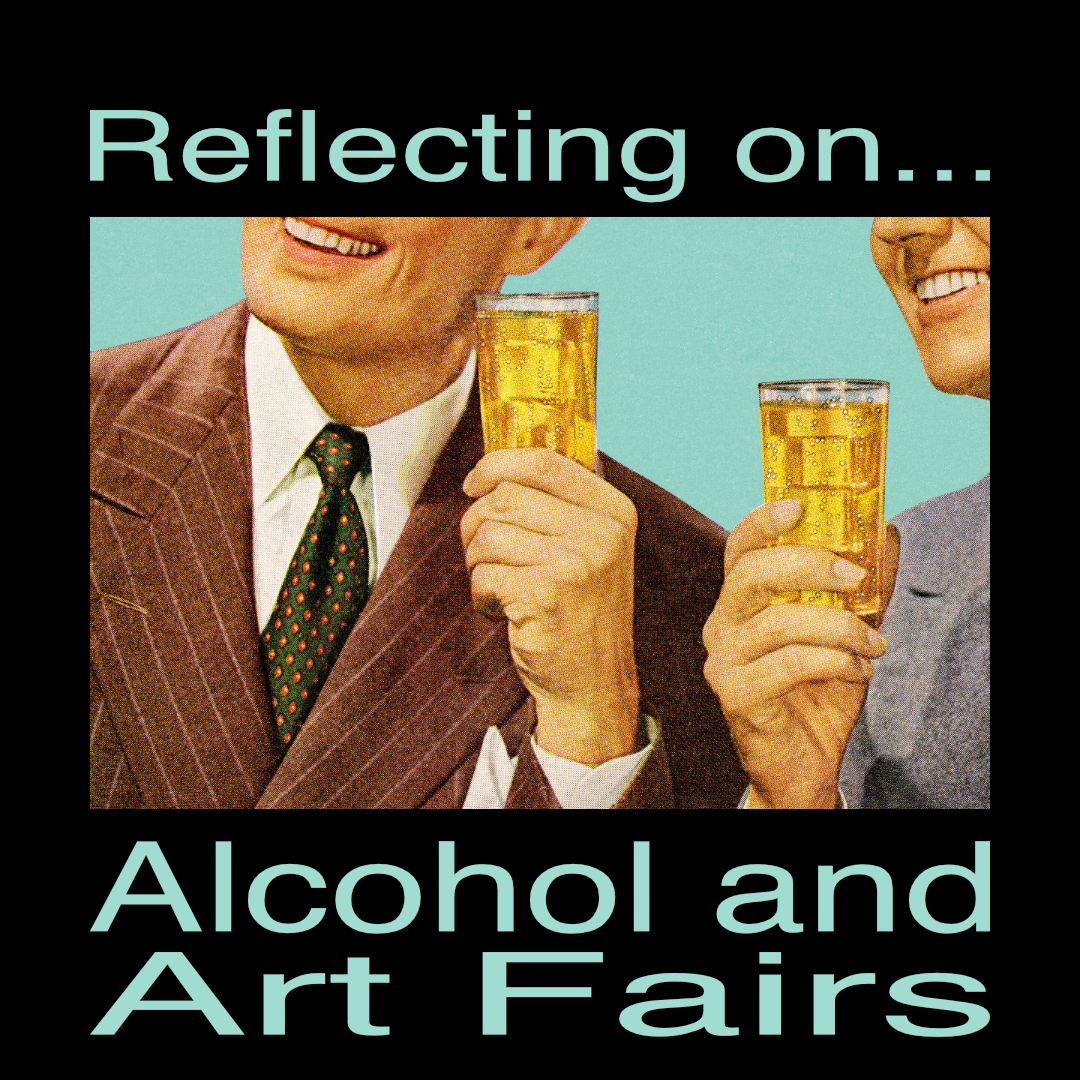


So hi, My name is Joe and I'm an alcoholic. I've been sober for nearly 2 years now but, of course, much of that time has been during the pandemic. As such, I haven't been travelling and haven't been to a festival/fair scale event outside of Göteborg, where I live (or inside Göteborg for that matter) since I stopped drinking. So Supermarket posed an interesting set of challenges.
Despite my outward performance of being at ease socially, I am very much not, especially in crowds, large group meetings and in contexts where I don't really know anyone so well. Past me would have gotten drunk and used that to compensate, but also would have become loud/belligerent and not super fun for people to be around. Present me didn't have that possibility.
I was also in a city that I don't live in, staying in a hotel room and largely feeling unable to relax at any point. I quit smoking about 18 months before I quit drinking, but during my stay in Stockholm smoked two packs (my throat is feeling it) and can only put that down to needing something to calm myself.
The art world has a strange relationship with addiction. There seems still to be a pervasive myth around the artist-addict needing to be drunk or high to produce. It is a cartoon of artists which is useful for conservative politicians to trot out as evidence for culture budget cuts. It is also a caricature that is particularly dangerous for young artists, trapping them inside of and normalising an incredibly unhealthy side of the industry. This isn't to say that everyone in the arts who drinks has a drinking problem, or is a problem. I do remember a certain amount of mystique around working hard and playing hard and the "struggle of the artist" syndrome associated with "being an artist" way back in college, however.
It is particularly telling at these events when every night is a vernissage or a party or a launch or closing event or a gallery crawl (which just means going and drinking cheap booze whilst trying to avoid damaging art) how haggard people look by the end of them. Other things play a part there, of course, the effort involved in putting these things together, travelling the need to be "professional" whatever that means. I wasn't drinking and needed a full 18 hours of sleep to feel vaguely normal when I got home.
Before I lose most of my readers to some perception of being the fun police; I'm not against these outpourings of social activity in the vicinity of art and wine! Especially now that things are starting to open up again following the lockdowns and travel restrictions, Supermarket felt like a needed breath of fresh air in the same way the opening party for GIBCA Extended did on a smaller scale in Göteborg. It was wonderful to get to hang out with, meet and chat with so many in the field of artist-run from near and far. The booths were great, the talks were great, the parties were great, but it still felt like folks who didn't want to or weren't allowed to drink were forgotten about.
The opening party was a prime example of this. Vast quantities of wine (of multiple colours) and beer were available as is right at a party. The alcohol-free options - water or a couple of bottles of coca-cola. This wasn't even a case of there being other alcohol-free options that had run out - they just never existed. I did consider nipping out and getting some alcohol free from the nearest shop - but I didn't know where that was, didn't really want to leave the party and would have had to drink them warm. During the rest of the duration of the fair coffee and tea were available in the exhibitor's lounge but otherwise just more wine and beer. There is only so much coffee a person can drink in a day and also, again, you feel a bit of a div standing with a paper cup of coffee or water whilst everyone else is having a beer. As someone who doesn't drink - whether for health reasons, choice, addiction or religion it doesn't make you feel the most at home.
It isn't just at Supermarket that I have noticed this trend. At a recent event in Göteborg I was looked at like a monster for turning down a glass of free cava for a toast, repeatedly offered it in a sort of "just take it " kind of way. Fortunately, a friend saved me with a bottle of alcohol-free beer which had been hidden in a fridge. These experiences have kind of made me realise why I stopped going to events. It makes it feel increasing like all artist-run venues are too many is a free bar. It just hasn't been as noticeable whilst everything has been closed.
I am absolutely not innocent in this. I've been that person pushing a glass of cava on someone and not understanding the position I'm putting them in. I'm also the person who has had countless openings and events which don't have an alcohol free option. I wish someone in one of those situations had made it clearer to me how I was excluding them from or making them feel uncomfortable at that moment. Maybe they did and I was too drunk to notice.

A screen grab from Instagram based project Blue Bag Life.
I guess with this brief text I want to do two things. Firstly, to offer solidarity for others in the arts who are recovering from addiction issues. As I look around friends and colleagues there feels an increasing number giving up, or at least significantly cutting back, on the drink and drugs and feeling much better for it. At the same point, I want to encourage folks to reach out to people around them or professional organisations which can offer support if they think they need help with addiction. You aren't alone.
Addiction is of course a societal issue not limited to the culture sector or artist-run. Ongoing project Blue Bag Life has been a real shining light in exposing real stories, thinking about them in sensitive yet productive ways and working towards an actual change. The project doesn't focus so much on recovery but rather forwards notions of support, community and mutual and self love in combatting detrimental addictive behaviours - so go have a look at that.
Secondly. To folks organising these events and creating these social spaces - please have some sort of alcohol-free option which isn't full of sugar and caffeine and doesn't make us feel like children. Or like we should just not be there at all. Non-drinkers can be just as much fun if you let us be. We aren't going to preach at you or try to make you feel guilty. Those who do that are probably just as bad if not worse when drunk, and are best avoided all the time! I for one just want to blend in and feel like everyone else but not have to consume alcohol to do that.
If you or someone close to you is struggling with addiction, seek help. There are support organisations of different kinds in most countries around the world. You aren't limited to addiction groups like AA. Though they can be fantastic for some people group therapy or situations don't work so well for others.
For more information about how you can find support for addiction: Contact your local doctors, search for local alcohol support networks or visit helpguide.org/addictions for a useful starting point.
ESSAY
JOE ROWLEY - OCT 2021

The Reflecting on... series takes situations, objects, artworks, articles, texts, podcasts and anything else really as starting points for reflection on artist-led and self-organised (AL&SO) practice.
Ephemeral Care focuses on ethics, practice and strategies in artist-led and self-organised projects.